Opinion
DICKSON TARKIGHIR AT 55: A STUDY IN DOGGEDNESS
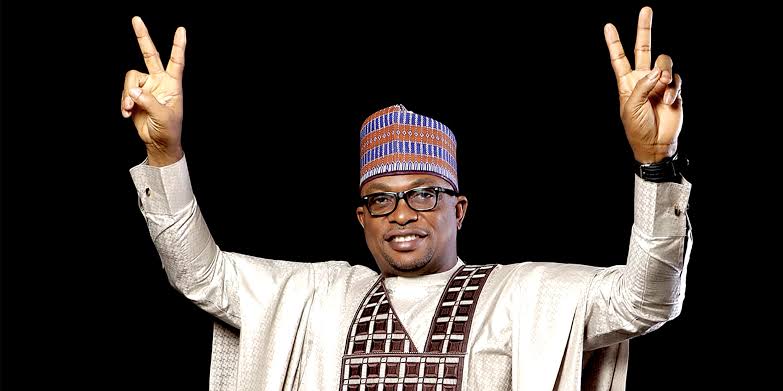
*By Tunde Olusunle*
Many of his kinsmen and friends had a good laugh the day he was inaugurated into the eighth assembly of the House of Representatives, June 2015. Most probably unsure how to pronounce his surname, the Clerk of the “green chambers” as the lower deck of the national parliament is described, opted for a spontaneous improvisation. Rather than set his tongue against his teeth, the Clerk after correctly pronouncing his first names settled for a simpler *Takiri!* By some coincidence, Tivlumun Nyitse my brother from our university days and cousin to *Takiri* and I watched the live telecast of that ceremony together. We had a very sumptuous laugh and called to congratulate him later that day. We reaffirmed he would have to don his new “baptismal necklace” for times to come and could hear his guffaw in the background. He took it in good spirits and has never made a fuss about it.
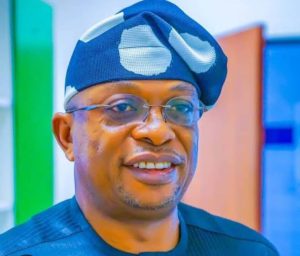
Dickson Dominic Tarkighir on that occasion was inaugurated as Member Representing Makurdi/Guma federal constituency of Benue State. I have been privileged over time to have met and developed relationships with sections of the Benue State middle class and political elite. I had encountered the amiable George Akume, (incumbent Secretary to the Government of the Federation), and the departed Ogirri Ajene his deputy, when they both governed the state between 1999 and 2007. Governors, (and their deputies when assigned), regularly had engagements in the State House where I functioned from under the Olusegun Obasanjo/Atiku Abubakar government. As “groundsmen” in Aso Villa, there was always the possibility of meeting dignitaries at that level. They were equally delighted to have you as a “strategic ally.” I’m also a friend of the affable Gabriel Torwua Suswam who succeeded Akume as governor in 2007 and Samuel Ioraer Ortom who took over from Suswam in 2015.
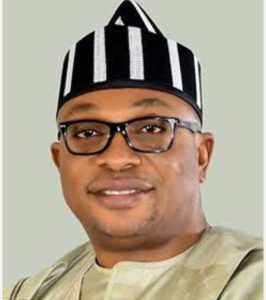
Four friends have also impacted my integration into Benue State where I’ve developed a broad network of friendships and acquaintances. Nyitse, my classmate since my first day in the University of Ilorin who is presently an associate professor of journalism has been most catalytic in this regard. He served as Permanent Secretary in the Benue State civil service for about 10 years and commands quite some respect in the Benue system. Through Tony Olofu, a retired Assistant Inspector General of Police, (AIG) with whom I went through the National Youth Service Corps, (NYSC) in Imo State between 1985 and 1986, I’ve also made friends from that sociocultural space. Shiaondo Aarga, alumnus of the University of Ilorin like Nyitse and I who also retired Permanent Secretary in Benue State, has also aided my acculturation. Shima Ayati was my colleague in the Obasanjo/Atiku government and we remain best of friends today.
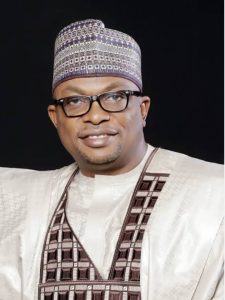
I met Dickson Tarkighir through Tivlumun Nyitse when Nyitse was Permanent Secretary, Government House Administration, (PS-GHA) in the Suswam administration, almost two decades ago. Tarkighir was Managing Director of *Triggar and Gibbons Ltd,* an advertising and logistics support service company which was foraging for business opportunities in Benue State. I was a regular face in Benue State those years because I had a consultancy liaison with the government. Tarkighir’s outfit may rightly be described as the precursor of electronic billboards in Benue State. Tarkighir had successfully experimented with the concept in Kaduna and found new grounds in his home state. Nyitse’s office was the engine room of the Suswam administration which processed the governor’s instructions and conveyances to the various ministries, departments and agencies, (MDAs). The personable, outgoing Tarkighir was a regular caller in Government House, Makurdi ensuring alignment between the vision of government and the electronic copies that were displayed for public consumption.
A multitasking entrepreneur, Tarkighir had previously setup *Dasnett Mobile Services Ltd,* with the coming to be of GSM services to Nigeria over 20 years ago. He impacted the entertainment space of Makurdi the Benue State capital by establishing a classy, integrated nightclub and services outfit. Located at the very heart of Makurdi, he christened it *District 4 Lounge.* Its ancillaries included a functional restaurant and a bakery. He developed it into perhaps the most sought-after hangout in the city, a preferred destination for high octane visitors to the state, previously pampered ostensibly, by mouthwatering options in bigger cities. Tarkighir is a notably hands-on executive whose presence and subtle guidance of his staff on reminds of the doting style of Ken Calebs-Olumhense, the iconic proprietor of *Niteshift* those good old days in Lagos.
Governor Gabriel Suswam took special note of Tarkighir’s exertions and innovative strides and engaged him as Senior Special Assistant, (SSA) on Industries, in 2009. He was reappointed in 2011 following Suswam’s reelection. Tarkighir resigned his appointment in 2014 to contest for a seat in the federal parliament. He dared unfamiliar grounds in his quest for the House of Representatives office when he defected from the better established Peoples’ Democratic Party, (PDP), to the fledgling All Progressives Congress, (APC). He triumphed at the polls as part of the countrywide *tsunami* which displaced the PDP from the centre of national politics at the 2015 general elections. It seemed well advised therefore that he took the gamble of defection to and running on the platform of the APC.
Despite being a first timer in the congress, Tarkighir was proactive. First, he was keen on learning the ropes. He was listed to serve in nearly a dozen committees of the parliament which was good for requisite exposure. He was in the appropriation; defence; petroleum (downstream); population; navy; health services; Niger Delta affairs; inter-parliamentary; integration in Africa and the ECOWAS parliament committees in the House. With the hindsight of creeping unemployment in the country, he advised that the 25,000 ghost workers discovered by the federal government at the time, be replaced with genuine job seekers. He imposed upon himself the responsibility of unearthing vacancies in MDAs and assisting his primary constituents wherever he could. He soon donned the alias of “Mr Employment” amongst his constituents as attestation to his efforts.
Tarkighir sponsored several bills and motions. Agonised by the ravaging Fulani incursions into his state for example, he sought the creation of a cattle ranching department in the federal ministry of agriculture. He also sponsored bills on healthcare; internet security; need for special attention for hydroelectric power producing areas, among others. His motions encompassed those requesting support for his flood-devastated constituency; the need for the rehabilitation of the Makurdi-Gboko federal highway and the imperative for the declaration of a state of emergency on deadly attacks by herdsmen across the country. Tarkighir prosecuted a plethora of projects in his constituency for the betterment of the lives of his people.
Solar-powered street lights; electric transformers; boreholes; sewing machines; cassava processing equipment; submersible pumps; bicycles; tricycles and laptops were some of the life-improving accessories he availed his constituents. Medical outreaches were organised for mass enlightenment, even as skills acquisition programmes were also prosecuted. Tarkighir equally facilitated the completion of the *Akaakuma* dam, and the construction of residential quarters for the divisional police officer in *Gbajimba* within his constituency, and a primary school in *Ngban* in *Guma* local government area. Tarkighir didn’t win reelection in 2019. He refocused on his core entrepreneurship concerns always never forgetting the adage about charity beginning at home. He rehabilitated and expanded his *District 4* model through which he rescued a few more youths from the hungry streets. “I’ve been there, Oga Tunde,” he tells me about his experiences growing up, his mien suddenly sobering. “It’s not easy out there.” Dickson Tarkighir won the Makurdi/Guma federal constituency seat at the 2023 polls and has since returned to the 10th Assembly of the House of Representatives.
He was born April 12, 1969 in Makurdi and attended St. Thomas Primary School, *Ibume* between 1976 and 1981. He proceeded to *Nongov* Community Secondary School in *Tse-Kyo,* in *Guma* LGA. He obtained a bachelors degree in business administration from the Ambrose Alli University, Ekpoma, Edo State in 2003. He thereafter consolidated his thirst for knowledge in this specialty by earning a masters also in business administration from the Ahmadu Bello University, (ABU), Zaria, in 2008. An indomitable quester for new vistas, he previously cut his career dentition with Mojo Electronics, Umuahia, Abia State, between 1988 and 1991. He also worked in the Kaduna station of the now defunct *Okada* airlines from 1992 to 1995. These were cross-country toughening experiences which have profited his worldview.
Tarkighir chairs the House of Representatives Committee on “Constituency Outreach,” created early in the life of the Fourth Republic in 2003. Among other responsibilities the committee exercises supervisory oversight on the implementation of Zonal Intervention Projects, (ZIP) by members, and addresses the interests of congressmen. In the ranking of House committees in the order of importance, Tarkighir’s brief is adjudged a “Grade A” outfit. He is reportedly the first parliamentarian from the north central geopolitical zone to chair his present brief. Tarkighir speaks impeccable Hausa which privileges him in our still largely parochial ethno-politics. He is happily married and blessed with children.
*Tunde Olusunle, PhD, is a Fellow of the Association of Nigerian Authors, (FANA)*
Opinion
5G,IoT and AI to boost global GDP by 2030

By Sonny Aragba-Akpore
With Mobile technologies and services now generating around 5.8% of global Gross Domestic Product (GDP) a contribution that amounts to about $6.5 trillion of economic value, there are strong projections that by 2030, this figure will rise to almost $11 trillion, or 8.4% of GDP.
Global System of Mobile Communications Association (GSMA) says much of this will be driven by countries around the world increasingly benefiting from the improvements in productivity and efficiency brought about by the increased take-up of mobile services and digital technologies, including 5G, Internet of Things (IoT) and Artificial Intelligence (AI).
The GSMA recently introduced the 5G Connectivity Index to provide insights into 5G performance in 39 markets in order to encourage informed decision-making.
In terms of Economic Impact,
the GSMA emphasizes the economic benefits of mobile technologies and services, including 5G, projecting that they will contribute significantly to GDP growth by 2030.
“The GSMA provides specific reports and analyses on 5G in different regions, such as Sub-Saharan Africa, Asia ,Middle East among others highlighting the progress and challenges of 5G deployment in specific areas.”
In Sub Saharan Africa for instance with particular attention on Nigeria,South Africa,Egypt,Kenya and Botswana among others some measure of progress in deployment has been recorded.
The rollout of 5G has brought immense benefits across multiple industry sectors, particularly those involving internet of things (IoT) and artificial intelligence (AI) applications in which the real-time transfer of data is crucial.
More broadly, the adoption of 5G is expected to accompany increased data use across the globe, with forecasts anticipating mobile data traffic of over 300 exabytes per month by 2030, more than twice the volume consumed in 2024 according to Statista.
And with a third of global population expected to be covered by this fifth generation (5G) networks ,a technology that has defined new ways of communication by 2025 ,GSMA
says the technology has surpassed growth projections of all times.
“5G subscriptions increased by 163 million during the third quarter 2024 to total 2.1 billion. 5G subscriptions reached close to 2.3 billion by the end of 2024 accounting for more than 25 percent of all global mobile subscriptions.
“4G subscriptions continue to decline as subscribers migrate to 5G” according to GSMA.
As of the first quarter of 2024, there were nearly two billion 5G connections worldwide, with 185 million new additions. This is expected to grow to 7.7 billion by 2028.”
Statistics show that 5G is the fastest-growing mobile broadband technology, reaching 1.5 billion connections by the end of 2023.
It only took four years to reach this number, compared to 10 years for 3G and more than five years for 4G.
“5G is more than a new generation of technologies; it denotes a new era in which connectivity will become increasingly fluid and flexible.5G Networks will adapt to applications and performance will be tailored precisely to the needs of the user” GSMA submits.
By covering one-third of the world’s population , impact on the mobile industry and its customers will be profound according to GSMA.
To deepen the spread of 5G ,GSMA is working closely with the mobile operators pioneering 5G, “by engaging with governments, vertical industries including automotive, financial services, healthcare providers, transport operators, utilities and other industry sectors to develop business cases for 5G.”
And In order to accelerate the growth and spread, many operators are said to be deploying
AI technology as part of an integral part of telecoms operators’ strategic and operational plans.
“Operators are making important advancements in the deployment of AI technology, which is serving as a transformative force shaping the telecoms industry. By deploying autonomous AI-based systems, operators can enhance operational efficiency, customer satisfaction and security, while also creating new revenue opportunities”.
China, South Korea, the United Kingdom, Germany, and the United States are the leading countries with robust 5G coverage in the world.
Since the first commercial launches of the fifth generation of mobile networks in late 2018, these five countries have emerged as leaders because multiple companies in these countries have deployed networks and are selling compatible devices. Countries including Switzerland and Finland are up and comers in 5G development, though they have limited deployment.
In China there are three Companies leading in deployment.
The world’s largest 5G network was launched by the three largest Chinese network operators Oct 31, 2019, according to the state-run news agency Xinhua. These are China Mobile, China Unicom, and China Telecom which all activated their networks in less than five months after they were issued 5G licenses.
Each of the network operators offered their 5G services at $18 per month in 50 Chinese cities at the beginning of the launch.
GSMA expects 36% of China’s mobile users to be using 5G by 2025. That’s about 600 million subscribers, who would also make up 40% of the entire global 5G market by this year.
This is all despite efforts made by the United States government to hamper the progress of Chinese vendors, though those efforts may affect how Chinese companies may expand into the global market.
In South Korea,SK Telecom and Korea Telecom run as the main competitors for the South Korean 5G market.
SK Telecom acquired spectrum in the 3.5 GHz and 28 GHz frequencies to prepare for deploying 5G.
In April of 2019, the Enterprise claimed to be the first mobile carrier in the world to launch 5G services to work on 5G smartphones. SK Telecom asserted an edge over rival Verizon, as the former launched 5G services available at the same time as Samsung Galaxy S10 5G smartphone launched in South Korea. Verizon launched mobile 5G services in the U.S. before a 5G enabled smartphone was available to U.S. consumers.
SK Telecom also conducted tests with a 5G Standalone (SA) Core (a core not reliant on the 4G network) for their 5G network in cooperation with Samsung Electronics.
The world’s largest 5G network was launched by the three largest Chinese network operators Oct 31, 2019, according to the state-run news agency Xinhua. These are China Mobile, China Unicom, and China Telecom which all activated their networks in less than five months after they were issued 5G licenses. Each of the network operators offered their 5G services at $18 per month in 50 Chinese cities at the beginning of the launch.
“What we are seeing is a concerted effort by the Chinese — the operators, vendors, and government regulators — to deploy 5G as quickly as possible,” Chris Nicoll, principal analyst at ACG Research, pointed this out in a November 1, 2019 SDxCentral article.
With all of these players working together, the three network operators had collectively deployed nearly 86,000 5G base stations peaked over 130,000 by the end of 2019. The latter number breaks down into China Unicom and China telecom, with each planning to install 40,000 base stations, and the market leader China Mobile to install 50,000.This was the projection by 2019 but they have since overshot this by the beginning of 2024.
The International Telecommunication Union (ITU), says 5G coverage reached 40% of the world’s population in 2023 with an uneven coverage and distribution with developed countries having more coverage than low-income countries:
In Europe ,68% of the population is covered and
Americas had 59% of the population covered while
Asia-Pacific has 42% of the population covered as at 2023.
Arab States have 12% of the population covered.
Commonwealth Independent of States (CIS) had 8% of the population covered.
ITU figures show Africa,s coverage rose to 10 % of the population by 2023 .
The ITU also notes that 90% of the world’s population is covered by 4G, but 55% of people without access to 4G live in low-income countries because In low-income countries, 3G is often the only technology available to connect to the Internet.
The ITU develops and adopts international regulations and global standards to enable the harmonization and implementation of broadband mobile networks.
In Africa, around a dozen nations have launched services including Botswana, Kenya, Mauritius, Madagascar, Nigeria, Seychelles, South Africa, Tanzania, Togo, Zimbabwe, and Zambia but Africa is a patchwork of 54 countries.
And penetration is predicted to be slow.
By 2027, Ericsson predicts that 80 percent of phone users in Europe will have 5G service.
At the same time, 5G subscriptions in Africa, home to 1.4 billion people, May stagnate at a little over 10 percent. Why will so few people in Africa get access to 5G services?
China, South Korea, the United Kingdom, Germany, and the United States remain the leading countries with robust 5G coverage in the world.
While many countries are already providing robust services,Africa remains on the outskirts of 5G services.
The countries in Africa that have launched 5G networks, include South Africa with its roll out
In March 2022, when the Independent Communications Authority of South Africa (ICASA) sold spectrum across several bands.
In Nigeria,MTN rolled out commercial 5G services in Lagos in 2022, with other roll out in Abuja, Port Harcourt, Ibadan, Kano, Owerri, and Maiduguri among others.
MTN Congo announced that it was the first country in Central Africa to deploy 5G.
In Botswana Orange deployed 5G technology to provide new services in the Gaborone and Francistown regions.
Other countries in Africa that have launched 5G Fixed Wireless Access (FWA) services include: Angola, Kenya, Zambia, and Zimbabwe.
Analysts say “5G’s potential is growing due to its ability to deliver fiber-like speeds. However, there are still challenges in the region, such as:
Urban areas are reaching their maximum capacity whereas a large portion of the population lives in rural areas.
This explains why 5G adoption in the sub-Saharan region is currently below six percent “
Analysts report that 5G deployment in Africa faces many challenges, including Spectrum assignment,regulatory issues,infrastructure,security,financial resources among others.
“Spectrum is a limited resource that is already in use by other services, such as TV broadcasters and satellite operators. Governments need to open up frequencies and grant 5G licenses at reasonable prices. “
Infrastructure is another major challenge.
“5G networks require a large initial investment, including expensive devices, antennas, and Radio Access Network (RAN) hardware. The infrastructure needs to be fiberized to support 5G services.
Regulatory conditions also serve as challenges to deployment.
For instance “regulatory authorities may not have started the process for licensing and granting frequencies in the right portion “
“Most of the equipment and devices required for 5G deployment need to be imported.”
There are also security challenges that make
5G technology vulnerable to cyber security threats, such as tracking calls and exposing user locations.
Opinion
Right of Reply: THE PUNCH AND BUSYBODY BUSINESS

The recent declaration of a State of Emergency in Rivers State has triggered diverse commentaries from a wide range of Nigerians.
Almost everyone hailed the presidential proclamation because of the visible threat to law and order in the state at the time the action was taken. Of course, there were a few naysayers who read political meanings into an otherwise sincere and prompt intervention.
One such negative interpretation is the position taken by the Editorial Board of The Punch newspaper. In one of its editorials published on the matter, the national daily claimed that the entire crisis was caused by what it described as “the needless meddlesomeness in the governance of the state by its former governor and Tinubu’s Federal Capital Territory Minister, Nyesom Wike….” It is unfortunate that this narrative and others like it have become commonplace in the media space.
How did the Editorial Board of a reputable newspaper arrive at such a conclusion? Their claim that the Sole Administrator, Admiral Ibok Ete Ibas (rtd), has been acting a script purportedly written by the Minister of the Federal Capital Territory, Nyesom Wike, is also faulty and has no iota of truth.
They also faulted the sacking of all political appointees who served in Governor Siminalayi Fubara’s administration, insinuating that their replacements were drawn from Wike’s political camp. Again, nothing can be further from the truth.
Since his appointment as the Sole Administrator of Rivers State, Admiral Ibok Ete Ibas has been running the state with the abundant human resources available in the state and has not imported anybody from outside the state. Did the Editors of The Punch really expect him to run the administration with the politicians loyal to the suspended governor?
Do they not know that the crop of political appointees who served Fubara would have found it difficult to work with the Sole Administrator?
Certainly, they know the truth, but they have chosen to stoke the fire to generate more tensions in Rivers State.
Certain interests might have commissioned this editorial to cast aspersions on the Sole Administrator and raise doubts about his capacity to run the state.
It may also have been the handiwork of Wike’s political detractors, the man whom many politicians love to hate for no other reason than envy and jealousy.
We urge the Punch newspapers to seek a better mode of intervention in the political situation and not dwell on innuendos and unsubstantiated allegations against certain political actors in order to blackmail them.
Dr Ike Odogwu
Opinion
“Chief. Dr. Ekuogbe Akpodiete; A Philanthropist, Lawyer, and Statesman”
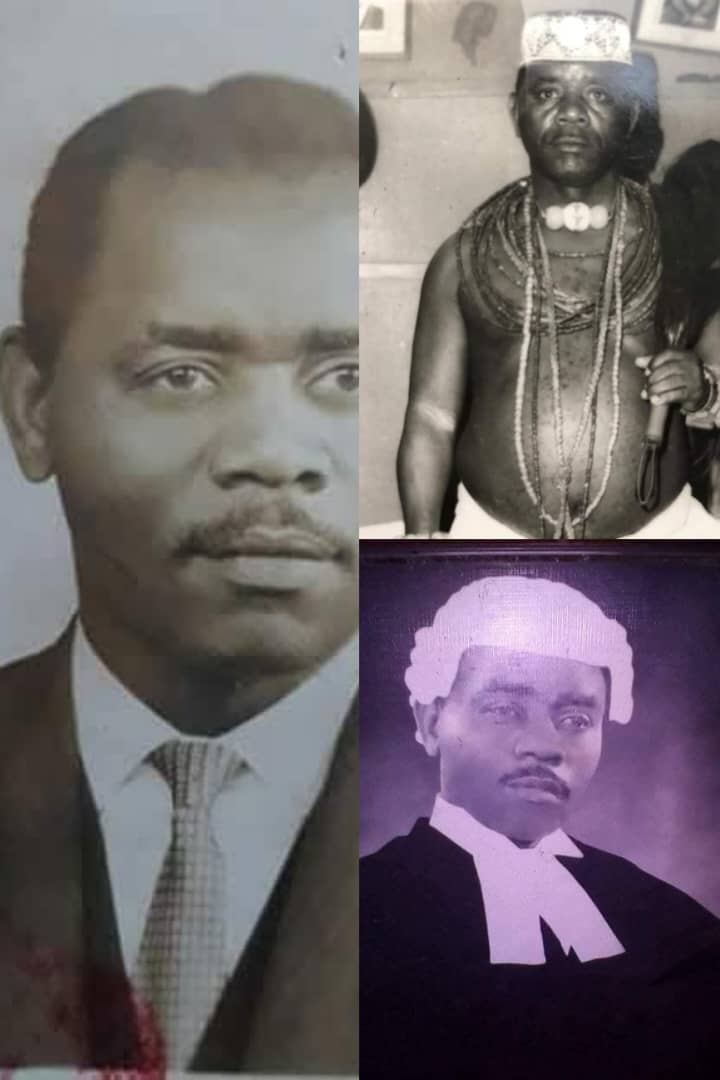
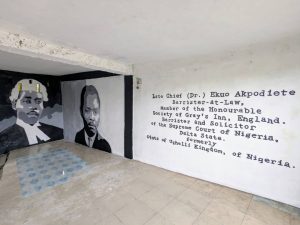
In a life of achievement, Chief Ekuogbe Akpodiete popularly called the Duke by his contemporaries in the UK was an assessment clerk, post office clerk, a court interpreter, an educationist, a business man, a political party chieftain, a Barrister and Solicitor, a Magistrate, the Otota (the Prime Minister) of Ughelli kingdom which is the highest traditional chieftaincy office that underpin the royal office of the Ovie of Ughelli Kingdom.
He was a trail blazer, a strict disciplinarian, a lover of people, and a philantropist. He saw to it that people lived in peace and happiness.
Born on the 4th of April, 1924, to parents cut from an industrious mould, Chief Ekuogbe Rowland Gregory Akpodiete took zealously to education that neither his mother Ughweriaka who was a trader, nor his father Akpodiete who was a farmer had.
He attended the Native Authority Primary School, Ughelli, and Enitona High School, Port Harcourt, for his secondary school education.
He thereafter had a brief teaching career in primary schools in Ofuoma near Ughelli, he worked as a process clerk in the then Sapele Township Department between 1950 and 1953, serving at the same time as an interpreter in the local courts.
He proceeded to the United Kingdom to seek the proverbial Golden Fleece where he worked and paid his way through, studying Law. He was admitted into the Honourable society of Gray’s Inn, England, in 1965, and shortly after, he returned home to Nigeria and attended the Nigerian Law School. He was called to the Nigerian Bar in 1966. He immediately started practice in Lagos. However, his practice in Lagos was regrettably abridged by the Nigerian Civil War, which drove him to his hometown Ughelli in 1967, where he continued to practise among his kith and kin as the first Legal Practitioner.
Chief Ekuogbe Akpodiete established himself in Ughelli. After the civil war, he served in the now defunct Mid-western State Judiciary from 1972 to 1975 as a Magistrate.
He was conferred with the chieftaincy title of Urhukperovie of Ughelli kingdom (the light of the King) by the then reigning Ovie of Ughelli, His Royal Highness Oharisi II of blessed memory in 1977.
In the quest for more knowledge, he went back to England for his Master’s degree in law (LL.M) and later a Ph.D. at the University of Warwick.
He was awarded an honourary doctorate degree (Ph.D) by Tenesse Christian University from the United States of America in 1991.
He became the Otota (the Prime Minister) of Ughelli Kingdom in 1986, an office he occupied until his demise on 9th April 1995.
Chief Ekuogbe Akpodiete was also politically involved. In the heady days of the Awolowo-led Unity Party of Nigeria, he was the party’s legal adviser in Ughelli and was on hand to assist during Chief Obafemi Awolowo’s campaign hosting in Ughelli and its environs.
In view of his love for people and entertainment, he established a popular cinema house, one of the first in Ughelli, known as REGA cinema, coined from his names, alongside an entertainment place called Unutakunu (people talk to people).
Chief Ekuogbe Akpodiete was blessed with wives and many children, grandchildren, and great grand children.
Mr. Olotu Akpodiete, PhD
Executive Director
Olotu & Ekuogbe Rowland Akpodiete foundation
-
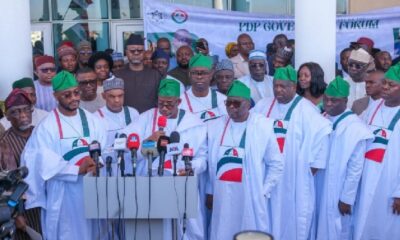
 News18 hours ago
News18 hours agoPDP governors declare support for Tinubu
-

 News22 hours ago
News22 hours agoEx-finance minister rearrested in new fraud probe
-
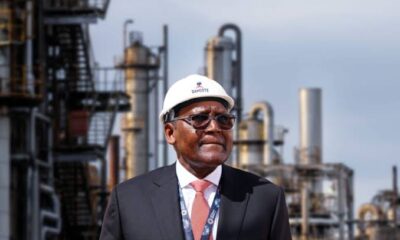
 News19 hours ago
News19 hours agoHope for Nigerians as Dangote refinery slashes petrol price again
-
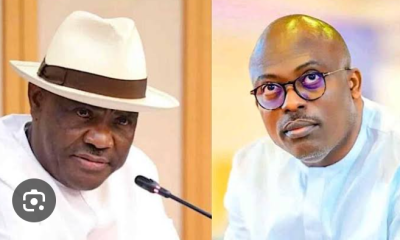
 News21 hours ago
News21 hours agoFubara: How can I forgive somebody who never requested for it– Wike
-

 News23 hours ago
News23 hours agoAlleged Se3ual Harassment: Natasha Declines Out-Of-Court Settlement Proposal By Akpabio’s Counsel
-

 News19 hours ago
News19 hours agoRivers Emergency Rule: Abbas inaugurates 21-member panel
-
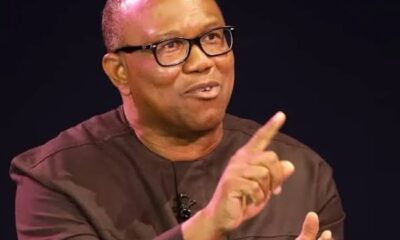
 News20 hours ago
News20 hours agoPeter Obi asks president Tinubu to suspend France trip
-

 News18 hours ago
News18 hours agoN1.3trn CBEX Scam: EFCC caution Nigerians against Ponzi Schemes






